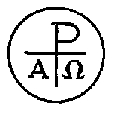
FAIR is a non-profit organization dedicated to providing well-documented answers to criticisms of the doctrine, practice, and history of The Church of Jesus Christ of Latter-day Saints.
| Answers portal |
| God |

|
|
Mainstream Christian critics claim that the Mormon doctrine of the Godhead and belief in theosis are not compatable with multiple statements in Isaiah that "beside [the Lord] there is no God." These passages include Isaiah 43꞉10-11; Isaiah 44꞉6,8; Isaiah 45꞉5-6; Isaiah 45꞉21-22; and Isaiah 46꞉9-10.
Context is critical to understanding these passages. In this portion of Isaiah Jehovah warned Judah to trust in him alone and not to trust in false gods who had no power to deliver them. The passages portray this as a contest between Jehovah and the gods of other nations.
Consider the passage in 43:10–11, where the Lord says
The context is clear in verse 12, which is typically omitted from the quotation:
"Strange god" refers to a false god, an idol.
Likewise for 44:6, 8 — this passage is followed by extensive discussion of "graven images" (Isaiah 44꞉9-17).
Passages such as Isa 44:6,8 and 45:5,21 that read "no God beside me" or a variation of that phrase are traditionally interpreted by mainstream anti-Mormons as meaning that there does not exist at all anywhere an entity, other than Yahweh, who is deserving of the title "god". However this sort of interpretation proves disastrous if applied consistently to similar phrases in Isaiah. (Isaiah 43꞉11) reads:
To be consistent, a critic would need to argue that this phrase demands that there exist no other being at all anywhere who is deserving of the title "saviour". However this type of interpretation is unbiblical, because (Obadiah 1꞉21) suggests otherwise:
Obviously despite an anti-mormon's interpretation there do exist those other than Yahweh who are deserving of the title "saviour". It is clear that Isaiah does not mean to suggest that noone else can be a saviour, and following that logic it is clear Isaiah is not suggesting there are no other gods.
Russell C. McGregor in "Letters to an Anti-Mormon" has argued that the phrase "no God beside me" found in these passages can alternately be translated from the Hebrew as "no God apart from me" or "without me", or even as "in preference to me". This interpretation provides a much more logical meaning when applied consistently with "no saviour beside me".
The passages in Isaiah cannot be called upon to disprove LDS beliefs in separate Gods in the Godhead or theosis. The point of them is to encourage Israel to leave off their idols and worship Jehovah alone. Any other use of them distorts Isaiah's meaning and intent.

FAIR is a non-profit organization dedicated to providing well-documented answers to criticisms of the doctrine, practice, and history of The Church of Jesus Christ of Latter-day Saints.
We are a volunteer organization. We invite you to give back.
Donate Now